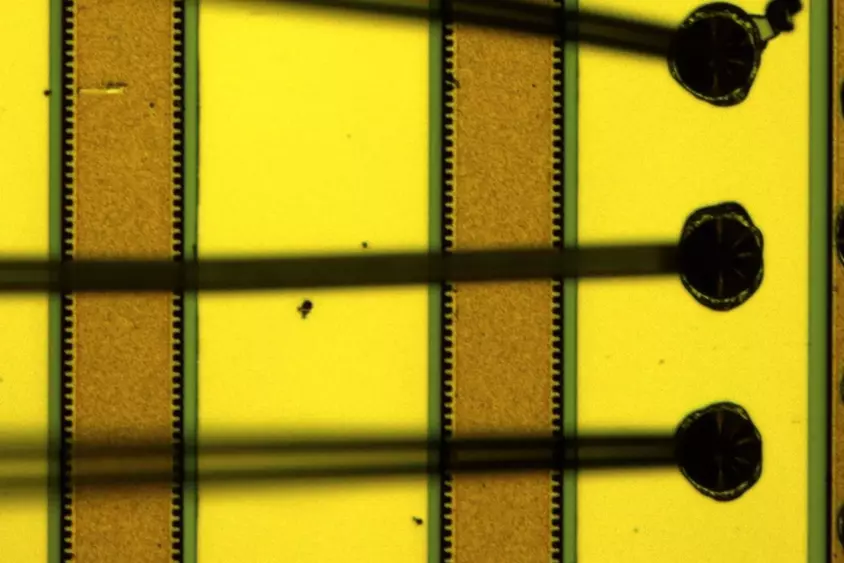The key objective of this project is the development of integrated terahertz quantum-cascade lasers for high-resolution spectroscopy and future space applications at 3.5 THz and 4.7 THz. These two frequencies are very important for the detection of the OH radical and neutral atomic oxygen, respectively, in atmospheric research as well as in astronomy. The overarching goal is to integrate the QCL chip with optics for optical isolation, outcoupling, and beam shaping as well as an optical fiber.
Quantum-cascade lasers are promising radiation sources for high-resolution spectroscopy with sub-MHz or even kHz spectral resolution for the terahertz spectral region. However, micro-optical integration becomes crucial when it comes to space applications. Besides the small mass and volume, micro-optical integration is important for the optical performance in such a harsh environment. The reasons are the vibrations of the required cryocooler and other non-stationary mechanical and microphonic disturbances, which act back on the laser by the residual external optical feedback from direct and indirect reflections. Without measures, the result is a linewidth enhancement of typically several MHz and a reduced output power stability, which is both problematic for demanding applications such as heterodyne radiometry. Eliminating the underlying effects requires a micro-optical platform with integrated optical isolator.
For the implementation of terahertz quantum-cascade lasers with reduced cooling requirements, the practical operation temperature, at which the lasers emit an output power of at least 1 mW in continuous-wave operation, has to be increased. To develop lasers with a practical operating temperature of higher than 80 K, new designs will be explored, the resonator losses reduced, and the thermal management improved.
The joint project is carried out in cooperation with the Institute of Optical Sensor Systems of the German Aerospace Center (DLR), Berlin, and the Ferdinand-Braun-Institut gGmbH, Leibniz-Institut für Höchstfrequenztechnik, Berlin, running from March 2023 until February 2026.
